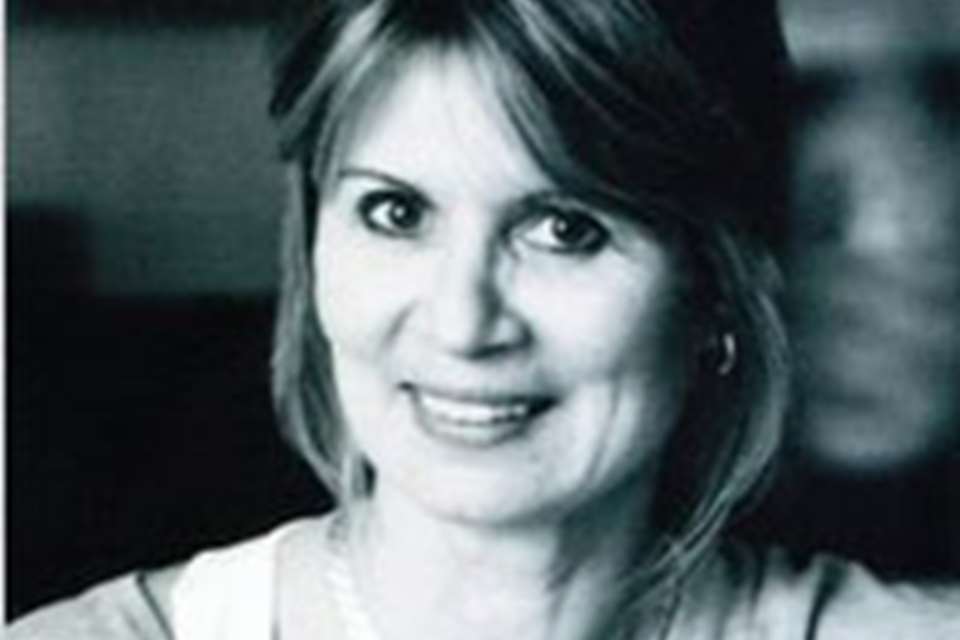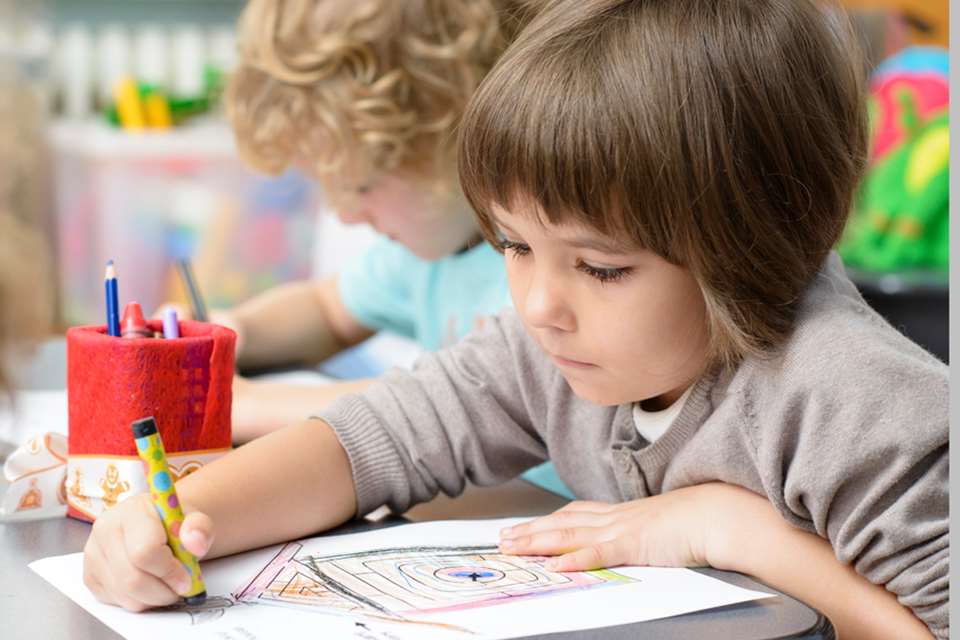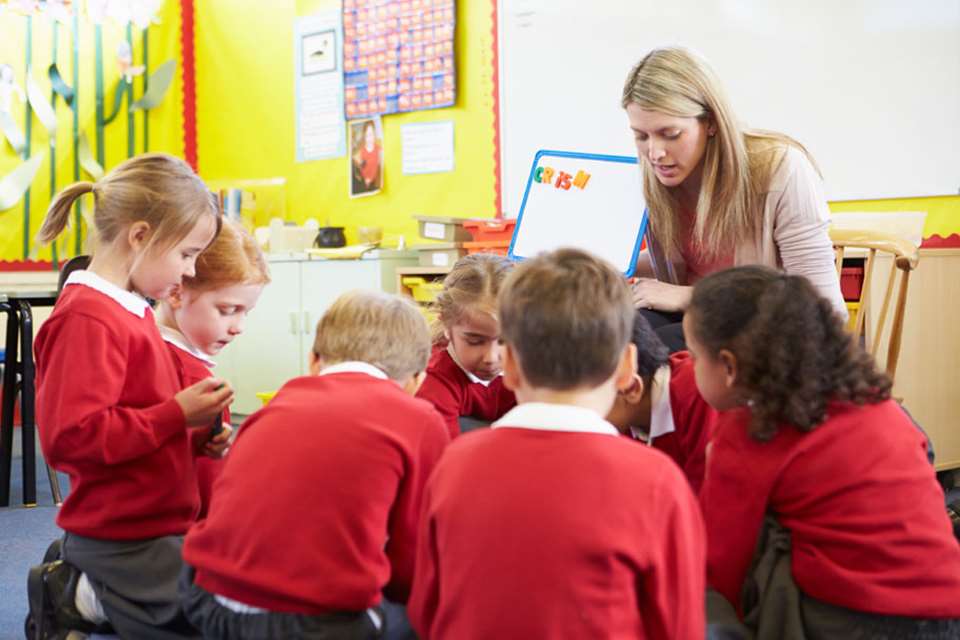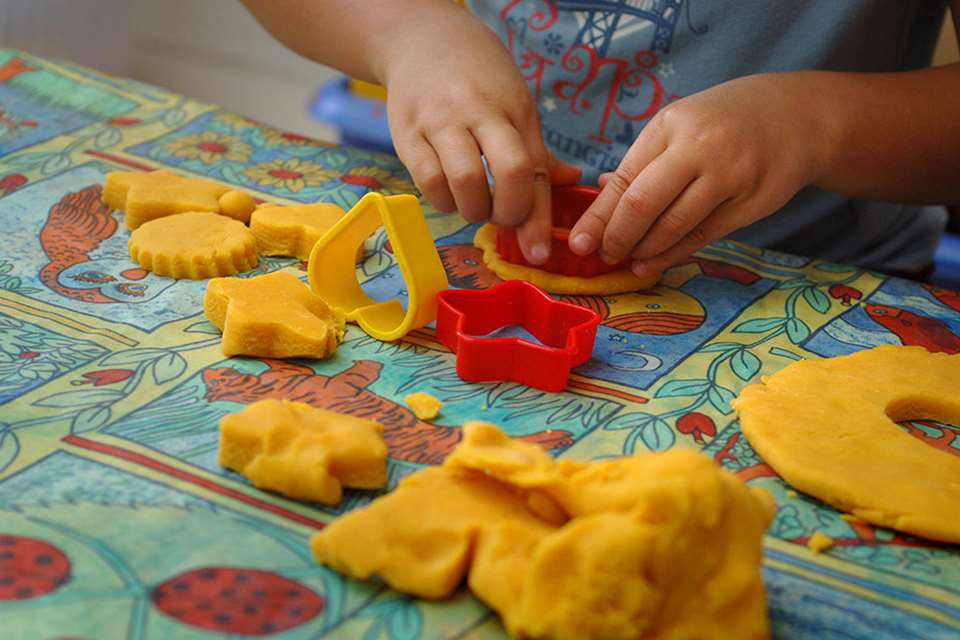Revised Early Years Foundation Stage - Area of concern
Helen Moylett and Nancy Stewart
Monday, July 23, 2018
The original EYFS was a result of extensive consultation with appropriate experts and research, but its revision lacks such rigour, say Helen Moylett and Nancy Stewart


Download the PDF of this article
If it ain’t broke, don’t fix it, says the wise old maxim – because the quickest way to break something is to fix it when it isn’t broken, and that’s exactly what the Government seems to be doing with the Early Years Foundation Stage (EYFS).
A primary assessment consultation which included questions on the Early Learning Goals (ELGs) and the EYFS Profile has been used as a vehicle for  a rewrite not just of all the ELGs but also the educational programmes. This programme rewrite is not based on the consultation responses, expert early years advice, an official review or requests from practitioners, but will affect everyone working across the EYFS, children from birth to five and their families.
a rewrite not just of all the ELGs but also the educational programmes. This programme rewrite is not based on the consultation responses, expert early years advice, an official review or requests from practitioners, but will affect everyone working across the EYFS, children from birth to five and their families.
Consider one-year-old Lola. The revised Educational Programme for Personal, Social and Emotional Development (PSED) has nothing to do with Lola, who is not yet at the stage of parallel, let alone co-operative, play: ‘Children who can co-operate are more likely to develop a good opinion of themselves and others, and to be able to learn effectively in a group.’ And the way Lola is finding out about her world is a far cry from ‘meeting important members of society such as police officers, nurses and firefighters. In addition, listening to a broad selection of stories, non fiction, rhymes and poems will foster their understanding of our culturally, socially and ecologically diverse world.’ In Physical Development she can use a pincer grip, but should she pay attention to ‘precision when using small tools correctly’, while building her Language as vocabulary is introduced to her primarily through listening to texts?
Other backward steps include a slight change of wording which removes the requirement that practitioners reflect the centrally important characteristics of effective learning in their practice. Communication and Language has lost the elements of Attention and Understanding, as if children can learn to use new vocabulary without these. Mathematics has lost Shape, Space and Measure and concentrates solely on number. Technology has disappeared altogether.
How has this happened?
By its very nature, the Primary Assessment Consultation of March 2017 attracted mainly respondents who were not working in the early years – 400 Reception teachers and 126 early years professionals responded, compared with 1,600 KS1/2 teachers and 1,100 head teachers (meaning just 16 per cent were EYFS respondents). There were 20 questions, seven of which concerned the EYFS Profile and Baseline assessment on entry to Reception.
We know little about how respondents actually answered the questions asked. According to the Department for Education, organisations canvassed their members before responding and people contributed via meetings so, as a ‘result of this, and the fact that the consultation questions were deliberately framed in an open and discursive manner to encourage full consideration of the issues presented, we have not provided a statistical analysis’. This is alarming.
Although early years experts and organisations were indeed invited to a very few roundtable meetings, there were no minutes of those meetings, and we were sharing space with people with commercial interests. None of the questions was, ‘We are thinking of reviewing and rewriting the EYFS. How do you feel about it?’ Nonetheless, this appears to be happening.
An ‘expert’ panel contributed to the current draft ELGs. However, it took Nathan Archer and Kym Scott to ask Freedom of Information questions before the DfE would publicly reveal who was on that panel. There was insufficient early years expertise in evidence, which has led to a current petition asking for a rethink (see https://bit.ly/2Nox7KP).
Given all the above, is it any wonder that there is concern about the legitimacy and transparency of the whole process, and huge worry about the effects of the lack of expertise in early childhood development and learning?
Why does it matter?
The EYFS is based on a well-researched understanding of child development from birth onwards. It provides a clear view of the centrality of the Unique Child who brings their own individual nature and the Characteristics of Effective Learning, driving forward in the Prime areas as the core of child development. The Specific areas are those we share with children as they move into our communities, areas of knowledge and ways of life.
The EYFS, taken together with the non-statutory guidance in Development Matters, supports practitioners to understand how children are developing, to meet each child where they are on their own journey, show them the next open door, and help them to walk through it.
This is a far cry from working backwards from a standards agenda that intends all children to be ready for a challenging primary curriculum, whether they are near their sixth birthday or not even yet five when they are judged on the ELGs.
Expecting all children to be ready to fit into Year 1 discounts the fact that children need experiences in their earliest years which build the foundations for all that will follow.
What are our concerns?
So what foundations are downgraded in the revised EYFS? Crucially, the revision has missed a chance to focus even more strongly on the Characteristics of Effective Learning and instead has made a weak and muddled reference that removes the requirement to reflect on the ways that children learn and reflect them in practice.
The Government has attempted to respond to evidence on the importance of self-regulation and its impact on later outcomes by placing a confused ELG labelled ‘self-regulation’ in PSED. This does not reflect the fact that the Characteristics of Effective Learning far more fully encompass the aspects of cognitive self-regulation including intrinsic motivation, metacognition, monitoring and control.
As for PSED, emotional self-regulation is already covered in the existing PSED, with its well-designed aspects of self-confidence and self-awareness, managing feelings and behaviour, and making relationships – if it’s not broken, don’t fix it.
The Prime area of Communication and Language has also been damaged. There is repeated reference to building vocabulary, which is important in children being able to hold specific ideas in mind and communicate them. But the number of ‘new words’ is not the key factor – size of vocabulary is simply a relatively easily measured endpoint that shows up in research, which stands in for the more important factors of how children use language to help them to think, to explain, to wonder and imagine.
The revised EYFS makes repeated reference to teaching new words through reading to children, which ignores the fact that young children don’t learn new words by listening to them being read, but by hearing them in the midst of real hands-on experience and using them in to-and-fro conversations.
Communication and Language has also lost the aspects of Attention and Understanding. Effective practitioners need to be familiar with the process of language development, which grows first through social interaction, then being able to listen and attend, then to understand, and finally to speak. The idea of teaching new words out of this developmental pattern leads to visions of children being taught to parrot lists of vocabulary words, without developing their real abilities to use language to communicate their own thoughts and feelings.
The revised EYFS has moved mention of Understanding into Literacy, combining it with reading comprehension to create an additional ELG for Reading at the expense of Communication and Language. This makes it look as though Communication and Language is a small part of reading, rather than being a fundamental basis for reading and for all other areas of learning.
In Mathematics, the entire focus is now on number, while shape, space and measure (SSM) has been removed both from the ELGs and the Educational Programme. This shows no awareness of the fundamental nature of SSM across the age range of the EYFS, as children engage physically and sometimes through schemas with ideas of pattern, estimating, relationships, problem-solving and transformations.
These areas are crucial foundations for the primary curriculum. Instead, number could be described within one ELG, and the welcome aspects of understanding numbers should not be confused with inappropriate recall of number bonds.
What happens now?
The new draft statutory framework and ELGs will be piloted in 25 schools’ Reception classes from September. Action for Children has been appointed as delivery partner – presumably supporting the schools to use the pilot Statutory framework and EYFSP handbook. It has been announced that ‘the reforms’ being piloted are intended to reduce the assessment and moderation burden on teachers, and improve the clarity and consistency of assessments.
Nowhere in the current EYFS statutory frameworkdoes it say that practitioners should collect mountains of evidence, but we welcome the strengthening of the advice and the reference to the independent report on eliminating unnecessary workload. However, we do wonder how changing all the ELGs is expected to reduce workload.
The Education Endowment Foundation will be managing and publishing an independent evaluation and a team from NatCenSocial Research has been appointed to actually conduct the evaluation. It would be good to have a comparative evaluation of how workload could be reduced by using the existing ELGs but not recording so much evidence.
The Government has announced that the EYFSP pilot is the first stage in a consultative process, with a full public consultation to follow the pilot. That is good news, but it is a great pity that there was no proper consultation before the pilot.
The EYFS is the result of a thorough partnership and consultation process with key stakeholders across the maintained, private, voluntary and independent sectors. It was always planned to conduct an independent review of its implementation and effectiveness after two years. The Government commissioned the Oxford University’s Literature Review(Evangelou et al 2009) to ensure that the EYFS review was theoretically well-informed, and again there was extensive consultation across the sector on the practicalities of working with the EYFS in settings and schools.
The resulting recommendations of the Tickell review(2011), developed by a group of advisors with appropriate expertise in early learning and development, were accepted by the Government and incorporated into the revised EYFS.
The Tickell review was responsible for the renewed emphasis on the Characteristics of Effective Learning. It also recommended that the areas of learning be divided into Prime and Specific areas. These important changes, which place recent knowledge about emotional, physical and cognitive development at the heart of the EYFS, have in turn influenced the EYFS Profile (EYFSP).
The fundamental design of the EYFS areas of learning should not be changed without a similar extensive review of the evidence and consultation with the sector. Amending the ELGs and Areas of Learning has the potential for a huge impact on the whole of the EYFS.
And we cannot forget that we are working in a context where the 30 hours and funding cuts are stressing and closing settings, millions of pounds are being spent on an already discredited Reception Baseline scheme, and where Government ideology based on a deficit model of the child is driving change.
Start from the child
Every child is truly a Unique Child, and should be respected and valued as such. Alongside individual differences in life circumstances and experiences, there are also inborn differences in rates of maturing. We can support children by providing rich opportunities and experiences, in the midst of constant warm and caring relationships. But we can’t change the basic nature or pattern of child development. Our job must be to support each child on their own pathway.
If instead we start from academic expectations to be reached by a particular deadline, we have to approach teaching and learning in a different way. We can drill children in narrow areas of learning, and many of them will then show shallow recall of knowledge we have instilled. But we risk rushing past the experiences that will help children build the foundations that are essential for success in the long run.
It can seem tedious or overly picky to dwell on small matters of wording in the EYFS. But often the devil is in the detail. The attention practitioners pay to particular aspects can determine the experiences and interactions a child has. We need to develop the best framework and guidance we possibly can, because it does matter to the child. Please join with us in campaigning to get all the early years voices heard, and show support for our Reception class colleagues who are once again feeling downward pressure to make the EYFS more like KS1.
Your professional organisation or trade union may be campaigning on this issue, and you can join Early Education as a supporter at: www.early-education.org.uk/become-early-education-supporter
Helen Moylett and Nancy Stewart are independent early years consultants. Helen is vice-president of Early Education; Nancy is vice-chair of TACTYC.
 FURTHER INFORMATION
FURTHER INFORMATION
Copies of the EYFSP frameworkand EYFSP handbook to be used in pilot schools, and the outline of the EEF evaluation and links to EEF and NatSocCen websites, https://www.foundationyears.org.uk/2018/06/the-eyfs-profile-pilot
Early Education’s response to the pilot, https://bit.ly/2uGmYBQ
Association of Teachers of Mathematics’ response, https://www.atm.org.uk/ELGs-Debate
National Education Union’s response, https://neu.org.uk/latest/comment-dfes-early-learning-goals-pilot
Keeping Early Years Unique – run by Elaine Bennett, early years campaigner and Year 1 teacher, https://www.keyu.co.uk
Report on workload and data management, https://bit.ly/2Llekj2
The Hundred Review – Early Excellence’s review of Reception practice and associated research, https://bit.ly/2kcmba6










